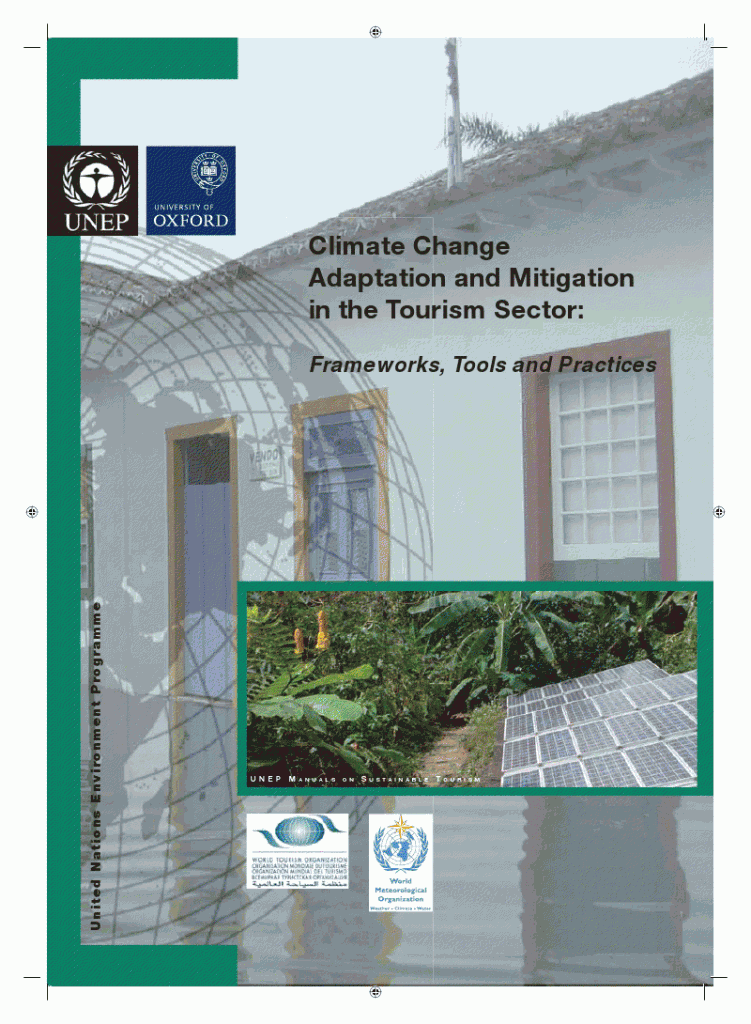AN EXCERPT: Accordingto UNWTO-UNEP-WMO (2008), emissions from tourism, including transports,
accommodation and activities (excluding the energy used for constructions and
facilities for example) account for about 5% of global CO2 emissions. However,
other greenhouse gases also make signifi cant contributions to global warming. In
the tourism sector, this is particularly relevant for emissions from aviation. In 2005,
tourism’s contribution to global warming was estimated to contribute between
5% and 14% to the overall warming caused by human emissions of greenhouse
gasses (for more details see section 5).
Of the warming caused by emissions of greenhouse gas emissions. According
to UNWTO-UNEP-WMO (2008), emissions from tourism, including transports,
accommodation and activities (excluding the energy used for constructions and
facilities for example) account for about 5% of global CO2 emissions. However,
other greenhouse gases also make significant contributions to global warming. In
the tourism sector, this is particularly relevant for emissions from aviation. In 2005,
tourism’s contribution to global warming was estimated to contribute between
5% and 14% to the overall warming caused by human emissions of greenhouse
gasses…
By 2035, tourism’s contribution to climate change may have grown considerably. A
recent scenario developed by the expert team of the technical report in the UNWTO-
UNEP-WMO (2008) publication considers different emission pathways, including a
‘business as usual’ projection based on anticipated growth rates in tourist arrivals,
as well as distances travelled by various means of transport. These projections
indicate that in terms of the number of trips made, global tourism will grow by
179%, while guest nights will grow by 156%. Passenger kilometres travelled will
rise by 222%, while CO2 emissions will increase at somewhat lower levels (152%)
due to efficiency improvements. The share of aviation-related emissions will grow
from 40% in 2005 to 52% by 2035. Tourism’s contribution to global warming
including all greenhouse gasses will be even larger, with an expected increase in
radiative forcing of up to 188%, most of this once again caused by aviation. The
development of emissions from tourism and their contribution to global warming
is thus in stark contrast to the international community’s climate change mitigation
goals for the coming decades.
TO READ THE ENTIRE DOCUMENT, CLICK THE IMAGE

http://www.unep.fr/shared/publications/pdf/DTIx1047xPA-ClimateChange.pdf



















0 Responses
Stay in touch with the conversation, subscribe to the RSS feed for comments on this post.